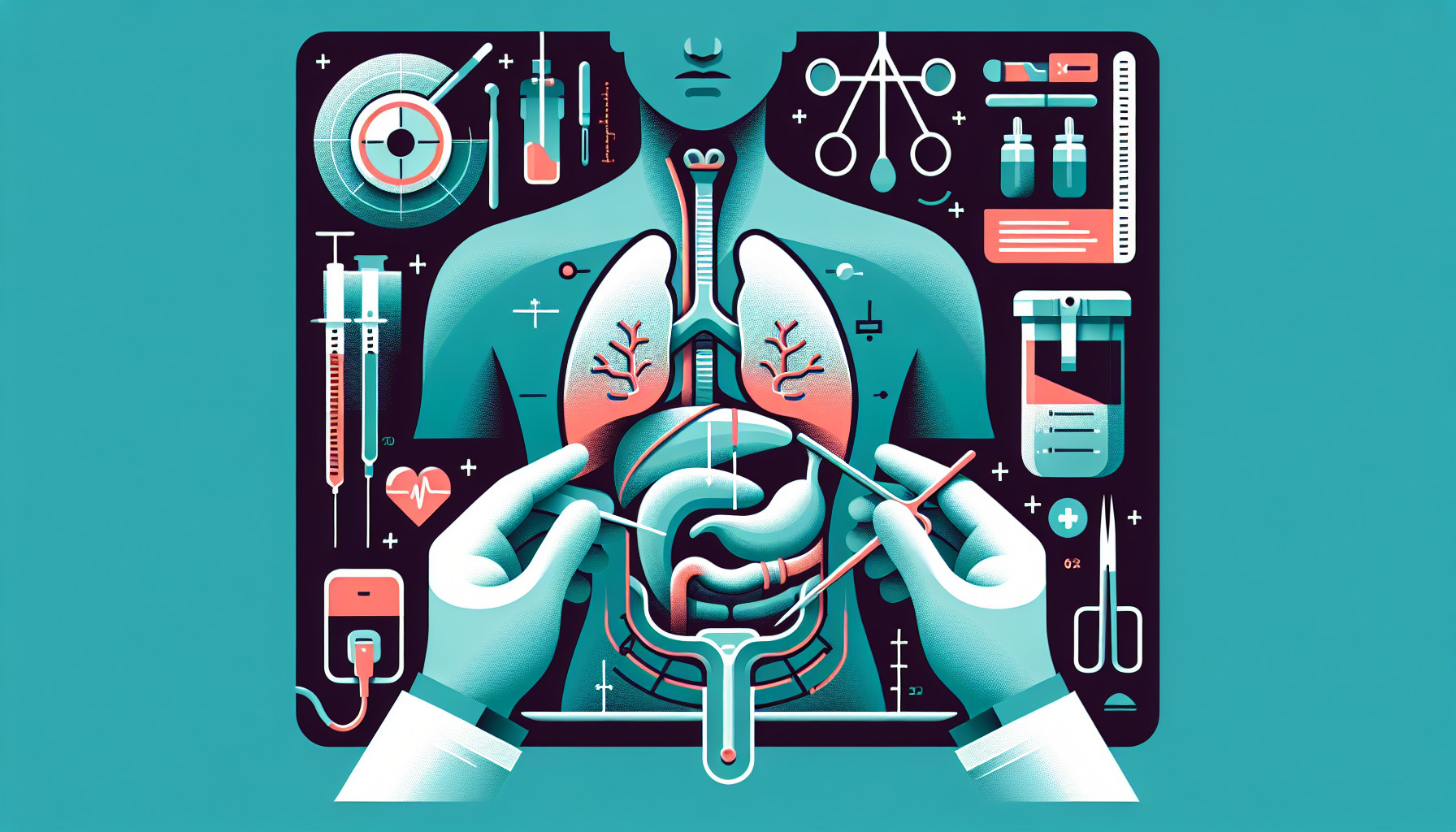Our Summary
This research paper discusses a study that was conducted to understand the effectiveness of pancreas transplants from donors who’ve died from a heart attack (DCD) compared to those from donors who’ve died from brain death (DBD). The fear was that pancreas transplants from DCD donors might not work as well, especially in terms of how the body handles sugar and other metabolic outcomes. The study looked at 185 cases in the UK where a pancreas transplant was performed without any other organ being transplanted at the same time (PTA). The researchers excluded cases where the transplanted organ failed within the first three months, allowing them to focus on long-term outcomes such as blood sugar control, weight gain, and occurrence of diabetes-related complications after the transplant.
After these exclusions, they compared 114 PTA cases from DBD donors and 48 cases from DCD donors. The body mass index (a measure of obesity) of the DCD donors was somewhat less, but otherwise, the two groups were similar before the transplant. The researchers found no significant differences in blood sugar levels, weight gain, organ rejection rates, or diabetes-related complications between the two groups after the transplant. Survival rates of the patients and the transplanted organ were also similar over 1, 5, and 10 years.
In simple terms, this study suggests that pancreas transplants from DCD donors work just as well as those from DBD donors.
FAQs
- What is the difference between DCD and DBD donors in pancreas transplantation?
- Are there significant differences in the metabolic outcomes between DBD and DCD pancreas transplant recipients?
- How does the survival rate of PTA patients from DCD donors compare with those from DBD donors?
Doctor’s Tip
One helpful tip a doctor might tell a patient about pancreas transplant is that transplanting a pancreas from a donation after circulatory death (DCD) donor can have equivalent metabolic outcomes and survival as transplanting from a donation after brainstem death (DBD) donor. Therefore, patients should not have concerns about receiving a pancreas transplant from a DCD donor.
Suitable For
Patients who are typically recommended for pancreas transplant include those with type 1 diabetes who have difficulty controlling their blood sugar levels despite optimal medical management, leading to complications such as kidney disease, neuropathy, and retinopathy. Additionally, patients with type 1 diabetes who have hypoglycemic unawareness or severe hypoglycemic episodes that are life-threatening may also be candidates for pancreas transplant. Other potential candidates include patients with type 1 diabetes who have end-stage renal disease and are already undergoing kidney transplantation, as a combined kidney-pancreas transplant may provide better long-term outcomes.
Timeline
- Patient is diagnosed with end-stage pancreatic disease and is deemed a suitable candidate for pancreas transplant
- Patient undergoes evaluation and is placed on the transplant waiting list
- Patient receives a call that a suitable donor pancreas is available
- Patient undergoes pancreas transplant surgery
- Patient is monitored closely in the hospital for complications and rejection
- Patient is discharged from the hospital and begins regular follow-up appointments with transplant team
- Patient undergoes regular monitoring of metabolic outcomes, including HbA1c levels and weight
- Patient may experience episodes of rejection, which are treated with medication
- Patient continues to be monitored for long-term complications and overall graft function
- Patient may experience improved quality of life and reduced dependence on insulin after successful pancreas transplant.
What to Ask Your Doctor
- What are the potential risks and benefits of a pancreas transplant from a DCD donor compared to a DBD donor?
- How does the donor’s body mass index (BMI) affect the success of the transplant?
- What is the expected impact on my HbA1c levels after receiving a pancreas transplant from a DCD donor?
- How does weight gain after the transplant compare between DCD and DBD donors?
- What is the rejection rate and likelihood of needing steroids after a pancreas transplant from a DCD donor?
- What is the incidence of secondary diabetic macrovascular complications post-transplant in DCD donor recipients?
- What is the expected patient and graft survival rates for a pancreas transplant from a DCD donor compared to a DBD donor?
- Are there any specific precautions or follow-up care that should be taken after receiving a pancreas transplant from a DCD donor?
Reference
Authors: Gopal JP, McLean A, Muthusamy A. Journal: Transpl Int. 2023 May 17;36:11205. doi: 10.3389/ti.2023.11205. eCollection 2023. PMID: 37266028
